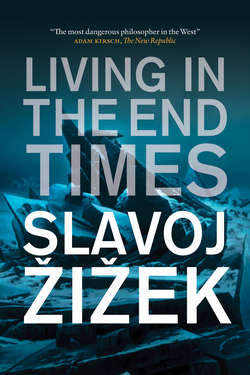Читать книгу Living in the End Times - Slavoj Žižek - Страница 14
На сайте Литреса книга снята с продажи.
Interlude 1. Hollywood Today:
Report from an Ideological Battlefield
ОглавлениеLet us begin, quite arbitrarily, with Michael Apted’s Enigma (2001, screenplay by Tom Stoppard, based on the novel by Robert Harris), which takes place in 1943, among the cryptanalysts at Bletchley Park working day and night to crack the German “Enigma” code. They are rejoined by Tom Jericho, a troubled working-class mathematical genius who is back after a period of recuperation brought on by overwork and an unhappy love affair with Claire, the easy-going femme fatale, which led to his psychic breakdown. Jericho immediately tries to see Claire again and finds that she has mysteriously disappeared. He enlists the help of Claire’s housemate Hester to follow the trail of clues and learn what has happened to her; the two repeatedly break both the rules of the Bletchley Park establishment and the law as their hunt gets more intense. Jericho is closely watched by Wigram, an upper-class MI5 agent, who plays cat and mouse with him throughout the film. Jericho is tolerated at the Park, despite his transgressions, because of the brilliant plan he invents for uncovering the new key. Tom and Hester at the same time uncover a British government plot to bury the intelligence information on the Katyn massacre, for fear it might weaken American willingness to remain in the war on the same side as the Soviet Union. This, in turn, leads to their discovery that a Polish cryptanalyst, Jozef Pukowski, was so incensed on learning of the massacre that he is prepared to betray Bletchley’s secrets to the Nazis in order to take revenge on Stalin. The fate of Claire remains unclear to the end: was she killed or did she just disappear? All we learn is that she was in reality also an MI5 agent under Wigram’s control.
The film was criticized for its manipulation of historical facts: apart from a minor series of changes (for example, the only known traitor at Bletchley Park was John Cairncross, who worked for the Soviet Union), the film’s biggest alteration concerns the character of Jericho, who is obviously a sanitized version of the legendary Alan Turing, a key figure at the real Bletchley Park in both the cracking of the Enigma code and the development of the digital computer; in the 1950s, Turing was prosecuted for homosexual acts, lost his security clearance, and was subjected to brutal chemical treatment, which resulted in his suicide in 1954. In the film, a firmly heterosexual Turing-Jericho finally gets over his traumatic crush on Claire—in the final scene, we see him in 1946, meeting Hester, pregnant with their child, in front of the National Gallery in London.1
However, such an analysis moves at the level of what one is tempted to call constituted ideology, following the distinction proposed by Alain Badiou between two types (or rather levels) of corruption in democracy: de facto empirical corruption, and the corruption that pertains to the very form of democracy with its reduction of politics to the negotiation of private interests. In a homologous way, one should distinguish between constituted ideology—empirical manipulations and distortions at the level of content—and constitutive ideology—the ideological form which provides the coordinates of the very space within which the content is located.2
To discern the contours of the “constitutive ideology” of Enigma, one should focus on how the film rather obviously plays upon the register of two enigmas: the enigma of the German secret code and the enigma of the Woman. No matter how complex the military codes are, they can be cracked—the true enigma which cannot ever be cracked is the Woman. (The split between Claire and Hester is crucial here: the only way for a man to normalize the sexual relationship is to erase the enigmatic Woman and accept the ordinary woman as a partner.) By re-framing the story of the effort to break the German “enigma” code into a story about the enigma of woman, what the film adds to the narrative is ideological surplus-enjoyment: it is this re-framing which sustains our pleasure in the otherwise narratively rather dull work of cracking secret codes. This feature is also what makes the film part of the Hollywood ideological universe: if a movie on the same topic (military decoding) had been made in, say, the Soviet Union, there would have been no erotic re-framing of the “enigma” (which is why the film would also have been much more boring. . .).
